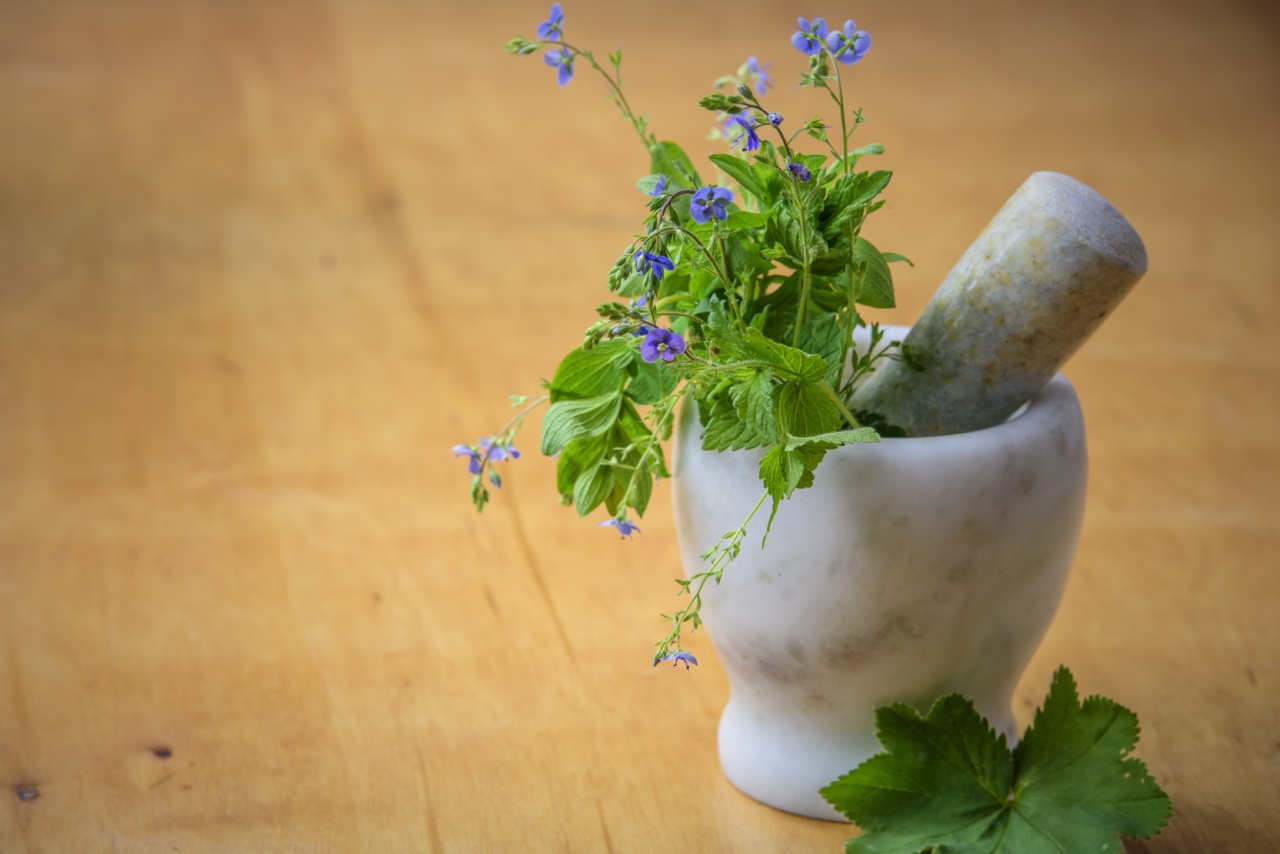Inflammation is the body’s natural response to injury or infection.
While acute inflammation is a necessary part of the healing process, chronic inflammation can lead to a range of health issues, including heart disease, arthritis, and even cancer. Fortunately, nature has provided us with a wealth of herbs that possess powerful anti-inflammatory properties. In this article, we will explore ten of these herbs and their potential benefits in fighting inflammation.
1. Turmeric
Turmeric, a vibrant yellow spice commonly used in Indian cuisine, contains a compound called curcumin, which is known for its potent anti-inflammatory effects.
Numerous studies have shown that curcumin can decrease inflammation by targeting multiple molecular pathways in the body. It has been shown to be particularly effective in reducing symptoms of arthritis, including joint pain and stiffness.
2. Ginger
Ginger, another popular spice, has been used for centuries in traditional medicine to treat various ailments, including inflammation.
Research suggests that ginger possesses anti-inflammatory properties comparable to non-steroidal anti-inflammatory drugs (NSAIDs) but without the potential side effects. It is believed to inhibit the production of inflammatory chemicals in the body.
3. Rosemary
Often used as a culinary herb, rosemary contains several anti-inflammatory compounds, including rosmarinic acid and carnosol. These compounds have been found to reduce inflammation and oxidative stress in the body.
Rosemary extract has also been shown to inhibit the production of pro-inflammatory enzymes, potentially providing relief for individuals with inflammatory conditions such as asthma and allergies.
4. Garlic
Garlic has been used for centuries in traditional medicine for its numerous health benefits. It contains sulfur compounds that possess powerful anti-inflammatory properties.
These compounds have been shown to inhibit the production of inflammatory proteins and reduce oxidative stress in the body. Additionally, garlic may help improve immune function, further aiding in reducing inflammation.
5. Boswellia
Boswellia, also known as Indian frankincense, is an herb commonly used in Ayurvedic medicine to alleviate inflammatory conditions such as arthritis.
Its active components, boswellic acids, have been shown to inhibit the production of inflammatory chemicals in the body. Studies have demonstrated that Boswellia extract can significantly reduce pain, swelling, and stiffness in individuals with osteoarthritis and rheumatoid arthritis.
6. Green Tea
Green tea is well-known for its high levels of antioxidants, but it also contains flavonoids called catechins that possess potent anti-inflammatory effects.
Research suggests that these catechins may help reduce inflammation in the body by blocking the actions of inflammatory chemicals. Regular consumption of green tea has been linked to a decreased risk of chronic inflammatory diseases, including heart disease and certain types of cancer.
7. Cayenne Pepper
Cayenne pepper contains a compound called capsaicin, which gives it its characteristic heat. Capsaicin has been extensively studied for its analgesic and anti-inflammatory properties.
When applied topically, capsaicin can help alleviate pain and inflammation associated with conditions such as osteoarthritis and fibromyalgia. Additionally, consuming cayenne pepper may help reduce inflammation in the digestive system.
8. Echinacea
Echinacea, a herb native to North America, has long been used as a traditional remedy for various ailments, including inflammation.
It contains active compounds called phenols, which have been shown to possess immune-enhancing and anti-inflammatory properties. Echinacea extract has been found to reduce markers of inflammation in the body and may help boost immune function.
9. Sage
Sage is a versatile herb with a long history of medicinal use. It contains several compounds, including rosmarinic acid and flavonoids, that have been shown to possess anti-inflammatory effects.
Sage extract has been found to reduce inflammation in the body and may also help improve memory and cognitive function. It is commonly used in natural remedies for inflammatory conditions such as sore throat and gingivitis.
10. Holy Basil
Holy basil, also known as tulsi, is a sacred herb in Ayurvedic medicine. It has been used for centuries to treat a wide array of ailments, including inflammation.
Holy basil contains compounds called eugenol, rosmarinic acid, and oleanolic acid, which have been found to possess anti-inflammatory properties. Research suggests that holy basil extract may help reduce inflammation in conditions such as arthritis, asthma, and diabetes.































